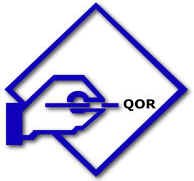By Matthew Russell Lee
UNITED NATIONS, January 28, 2010 — At the UN on Thursday, Europeans bragged what they’re going for Somalia, while a representative from Minneapolis of the Transitional Federal Government, in control of all of ten square blocks in Mogadishu praised Norway for its help. Video here.
Afterwards, off camera, he agreed with Inner City Press’ critique of Norway’s role in a Kenyan – Somali Law of the Sea filing about Somalis’ mineral and other rights.
First Inner City Press asked the Chief of Staff of EU NAVFOR Somalia (Operation Atalanta) Paul Chivers which UN system ships EU NAVFOR provides protection for. Chivers spoke mostly about the World Food Program, which he said spends its money on food and not on good ships.
Later in the day, Inner City Press asked Carl P. Salicath, Senior Advisor at Norway’s Ministry of Foreign Affairs, and Chairman of the Contact Group on Piracy off the Coast of Somalia (CGPCS), if this meant that the UN ships don’t comply with the “best practices” he was describing.
Mr. Salicath said he can’t speak about particular ships, just as he said he can’t speak for the Chinese, why and how they will participate in the EU NAVFOR.
So, Inner City Press asked Mr. Salicath about Norway’s controversial funding of a joint Kenyan – TFG filing with the UN under the law of the sea, which the Somali Parliament later voted to reject. Mr. Salicath said he knew about the deal, but didn’t understand the criticism. I better leave it there, he said.
Norway’s Salicath, Somali criticism not shown: Video here.
Afterwards in the hall, Omar Jamal of the Somali mission agreed that the Parliament had voted it down. But he issued an email to the Press praising Norway, which we public exactly as received:
“Omar Jamal, First Secretary of the Somali mission spoke today at the Fifth Plenary meeting of Contact group chaired by Norway. “Somali feel sometimes being diagnosed with their input.” said Omar Jamal. The piracy issue is prodcut of the lawlesness of the country, and to tackle it, international communtiy must empower the Somali security force so they can patrol thier own waters. There is NO short cut here, and the only way out is long term plan by empowering the Somali goveremnt to restore law and order and patrol Somali coastline.” Omar Jamal continued. The Mission expresses thanks to the leadership of Norway in this particular problem. The Somali people are at complete loss that the fact the international community rendered helpless by bunch of Somali teenagers riding speedboats, armed with AK47 and PRGs. Somali goverment will collaborate with the international community to come up with ever lasting resolution to the piracy issue.”
He still uses a cell phone with a Minneapolis area code. Watch this site. http://www.innercitypress.com/un1sompirates012810.html
14 January 10: Media Stakeout (UN): Informal comments to the Media by Mr. Ahmedou Ould-Abdallah, Special Representative of the Secretary-General for Somalia and Head of UNPOS on the situation in Somalia.
[Webcast: Archived Video – 13 minutes ]
28 January 10 Media Stakeout (UN): Informal comments to the Media by the Representative of the United States of America, H.E. Ms. Susan E. Rice on the situation in Côte d’Ivoire, Somalia, and other matters .
[Webcast: Archived Video – 5 minutes ]
……..
COMMUNIQUE: The Contact Group on Piracy off the Coast of Somalia
29/01/2010 // The following text is the communique of the 5th Plenary of the Contact Group on Piracy off the Coast of Somalia. The meeting, which took place in New York on January 28, 2010, was chaired by Norway.
The Contact Group on Piracy off the Coast of Somalia (CGPCS) held its fifth meeting in New York on 28 January 2010, under the Chairmanship of Norway.
The CGPCS has since the establishment served as an excellent forum for international cooperation and coordination to prevent piracy. Through its working groups it has facilitated military coordination off the Coast of Somalia, developed Best Management Practices (BMPs) for self-protection of the industry and established the IMO Djibouti Code Trust Fund and the International Trust Fund to Support Initiatives of States Countering Piracy off the Coast of Somalia. Still, piracy attacks remain at a significant and worrying level and the area of attacks are expanding into the Indian Ocean, which requires an effective military response. The CGPCS therefore reiterated its pledge to continue its activities.
The CGPCS welcomed Security Council Resolution 1897 (2009) commending the work of the CGPCS to facilitate coordination in order to deter acts of piracy and armed robbery at sea off the Coast of Somalia.
The CGPCS noted that the agreed BMPs are effective preventive tools against piracy off the Coast of Somalia. It is of vital importance that the BMPs are followed. While welcoming agreed BMP compliance by the majority of the shipping industry, the CGPCS noted with concern the continued non-compliance by a minority, and urged increased action by flag states and shipping companies to continue to minimise risk, including through ship security plans as agreed in the New York Decleration. The CGPCS invited its working groups and the IMO to keep the CGPCS updated on action in this area.
The CGPCS noted with concern ongoing piracy attacks, but welcomed the continued reduction in the rate of successful attacks by pirates off the Coast of Somalia. As a result of the Shared Awareness and Deconfliction process (SHADE) the combined military presence has been a key contribution in significantly reducing the number of successful attacks in the Gulf of Aden with only two attacks in the last six months resulting in vessels being hijacked. The Somali Basin has seen an increase in the number of active pirate groups but improved reconnaissance could enable timely routing advice and the interdiction by naval forces. As a result of this military activity some 90 pirates have been detained and nearly 50 skiffs and associated paraphenalia have been destroyed.
The UN-DPA and UNPOS, who serves as the chair of the International Contact Group for Somalia (ICG), addressed the CGPCS plenary and emphasized the importance of addressing the root causes of the piracy problem off the coast of Somalia. Measures at land and at sea should be well coordinated. The CGPCS welcomed the agreement of intent reached by the Transitional Federal Government of Somalia (TFG) with the regional authorities of Puntland and Somaliland in Kampala, Uganda, on 10 – 12 January to establish a technical coordination mechanism for counter-piracy. The CGPCS expects this mechanism to act as an efficient interlocutor on technical aspects as highlighted in the Working Group 1 Needs Assesment.
The CGPCS noted with satisfaction that the communication and cooperation with the ICG is established and that such cooperation will further enhance the efforts of the two groups.
The UK reported on the Working Group 1 meetings of 16-17 November 2009 and 27 January 2010, held in London and New York City respectively. The CGPCS reaffirmed its strong support for the activity of multinational and national anti piracy military operations in the region, and welcomed their continuing success in delivering a substantial level of security for international shipping, in particular in the critical Gulf of Aden Internationally Recognised Transit Corridor (IRTC).
The CGPCS welcomed the intention by China to harmonize its military operations with the IRTC patrol system co-ordinated by the multinational SHADE mechanism, and thus optimizing the most efficient possible use of military assets in the fight against piracy, bearing in mind that international escorting cooperation is on a voluntary basis and under the guidance of independent military command.
Recalling its agreement on the need for early action to deliver increased counter-piracy capability throughout the region, including within Somalia, as the sustainable means to combat piracy and address its root causes in the longer term, the CGPCS welcomed the regional counter-piracy capability development needs assessment and prioritisation mission report delivered by Working Group 1. The CGPCS endorsed the agreement by Working Group 1 that the report should provide the basis for further detailed work to address regional counter-piracy capability development needs. This is without prejudice to decisions on detailed implementation and funding of projects, especially through implementation of the Djibouti Code of Conduct, led by the IMO, and through the development of legal structures, led by the UNODC, both of these areas of work being of great importance. The CGPCS stressed the importance of enhanced coordination capacity development efforts. The CGPCS welcomed the offers of bilateral and multilateral support which had already been received to implement the needs assessment report, and encouraged all CGPCS partners to provide support, financially or in kind, including to build up effective Somali structures in relevant areas. The CGPCS tasked Working Group 1 to continue to promote effective military coordination between different naval forces combating piracy off the coast of Somalia, as well as to enhance further regional capability development.
Denmark reported on the work of Working Group 2 on legal issues, emphasizing the following:
• the list of Working Group 2 accomplishments (“the legal tool-box”);
• the need for all participants to maintain focus on both own legal and actual ability to prosecute suspected pirates and to ensure timely and sufficient capacity building assistance to States willing to prosecute;
• the need to develop further specific instruments to ensure prosecution, including the availability of witnesses.
The CGPCS underlined the need to end impunity of piracy off the coast of Somalia. The effective prosecution of piracy suspects is a key element to countering piracy and crucial to the success of the international efforts off the coast of Somalia. The CGPCS emphasized the urgent need for all States and Organizations to continue to review rules and procedures in order to ensure prosecution of suspected pirates and the necessary global and regional burden sharing in this respect.
On the issue of an international, regional or other mechanism for the prosecution of suspected pirates as a possible addition to national prosecution, the discussion in Working Group 2 showed that the most feasible model would be a specialized or dedicated piracy chamber – with or without international elements – established within the existing domestic criminal justice system of one or more States and located in one or more States willing and able to undertake prosecution, including Somalia when this becomes possible. The Chair underlined that this conclusion was without prejudice to the position of States and organizations on the need for such a mechanism.
The CGPCS took note of the Working Group 2 discussions on this issue. It welcomed the efforts of Kenya and the Seychelles to ensure prosecution of pirate suspects and – in the strongest possible terms – called on all States and Organizations to step up assistance to targeted judicial capacity building in the region, including in support of the development towards establishing specialized or dedicated piracy chambers. The CGPCS underlined the need for continued close cooperation between Working Group 1 and 2.
The CGPCS asked the Working Group to continue its work based on the future actions described in Chairman’s conclusions and the guidance given by the CGPCS, in particular to look into the ways and means of how to overcome the incompatibility of national criminal procedural norms and rules that hamper the effectiveness of criminal prosecution of suspected pirates. The next meeting of Working Group 2 will be held in Copenhagen before the next CPGCS plenary meeting.
The CGPCS adopted the revised Terms of Reference for its Trust Fund with UNODC as the fund manager. Germany reported to the Plenary from the Extraordinary Meeting of the CGPCS in New York City on 7 December 2009 on which the Board of the Trust Fund was elected. The CGPCS welcomed the support of Cyprus, Denmark, France, Germany, Greece, Japan Sweden, UK and Norway who have already pledged support to the fund, and encouraged other countries to do so as well.
The United States reported from Working Group 3 that updating BMPs for self protection has proven to be a useful process, thanks to the collaborative efforts and commitment of industry with the support of Maritime Security Center-Horn of Africa (MSC-HOA), UK Maritime Trade Operations (UKMTO), and Maritime Liaison Office (MARLO). Delegations should remain aware of these efforts, encourage their respective vessels to use the services of MSC-HOA, and disseminate current versions of BMPs and other piracy counter-measure guidance. While an estimated 90% of vessels are following some parts of the BMPs, the positive effects are often being undermined by vessels not reporting to MSC-HOA and UKMTO. Opportunities exist to improve these reporting trends through the use of Long Range Identification and Tracking (LRIT) and Shipboard Security Alert System (SSAS) information. Human factors continue to emerge as increasingly relevant to anti-piracy efforts, and more comprehensive guidance is felt needed to complement the vessel protection measures in the BMPs and other piracy counter-measure guidance. Some flag states include anti-piracy training in their respective maritime schools. Clinical studies, now underway to address the impact of piracy on seafarers are expected to produce more comprehensive guidance in this regard. Broad support for these efforts have been expressed by ship registries, vessel operators, shipping advocates, labor relations personnel, and regulators in supporting protection of crews and vessels. Working Group 3 will continue to identify issues related to human factors and seafarer welfare, develop or identify guidance in support of crew training and post event activities, and facilitate their validation and dissemination from authoritative sources. Working Group 3 will continue to work primarily through correspondence to review BMPs and anti-piracy guidance, and identify and develop labor related guidance to strengthen shipping self awareness as well as to inform and complement the work of the Maritime Safety Committee of IMO. A formal meeting is being planned at IMO headquarters in London on 18 and 19 March 2010.
Working Group 4 reported on its third meeting held in New York on 27 January 2010. The CGPCS underscored the importance of making the Somali region inhospitable to piracy. This goal can be achieved by pursuing a strategic and comprehensive implementation of the CGPCS communication strategy and by pursuing land based and other policies. The CGPCS confirmed the central role of the United Nations in coordinating implementation of the CGPCS communication and media strategy and stressed the need to strengthen coordination with the ICG.
The CPGCS invited the United Nations to elaborate project proposals to support the implementation of the CGPCS communication and media strategy. For this purpose, the United Nations can submit project proposals to the trust fund board as well as to other donors. The Chair of Working Group 4 intends to play an active role in fundraising for these projects.
INTERPOL reported that it will establish a dedicated Working Group to assist its member countries to curb maritime piracy. Participants of the CGPCS emphasized the importance of the increased collection and exchange of investigation information and intelligence on maritime piracy issues and its financial ramifications; enhanced capacity building and trainings for law enforcement agencies of regional countries affected by piracy; and international cooperation with all relevant stakeholders and the international community to efficiently coordinate the efforts undertaken to successfully eradicate maritime piracy off the coast of Somalia.
The CGPCS welcomed the offer of Greece to chair the sixth Plenary Meeting which will be held in New York in May 2010.
The CGPCS also welcomed the offer of The Republic of Korea to chair the seventh Plenary Meeting, and The Republic of Turkey to chair the eighth Plenary Meeting, both to be held in New York.
Norway leads meeting on the Somali piracy problem
28/01/2010 // The Contact Group on Piracy Off the Coast of Somalia, which is currently chaired by Norway, is meeting in New York on Thursday January 28. A great number of countries and organisations are taking part. The main goal is to coordinate and strengthen efforts that protect shipping off the Somali coast from piracy. Experience shows that the effort is paying off. Meanwhile the pirates have extended their sphere of operation to far out into the Indian Ocean.
The work of the contact group takes place in four working groups that focus on regional capacity building and military coordination, legal prosecution of pirates, preventative measures for the shipping industry and communication.
The plenary meeting in New York is led by senior advisor in the Norwegian Ministry of Foreign Affairs, Mr. Carl P. Salicath, who’s the contact group’s current chairman. The Norwegian Ministry of Trade and Industry also takes part, in close cooperation with Norway’s shipping industry.
About 130 delegates from many countries and organisations will attend, including representatives from the UN, EU, NATO, China, India, the United States and the International Maritime Organisation (IMO) as well as representatives for Somalia.
”Somalia is a country in deep crisis and the solutions to the fundamental problems there lie in creating peace and economic development on land. This will reduce the recruitment to the kind of criminal activity that the pirates represent. The measures against piracy must be seen in the context of the wider international effort for positive development in Somalia in which Norway will continue to play an active role,” says State Secretary Gry Larsen.
Read the opening remarks of the chairman Carl P. Salicath (bellow)
Contact Group on Piracy off the Coast of Somalia
28/01/2010 // Norway chaired the 5th plenary session of the Contact Group on Piracy off the Coast of Somalia at the UN headquarters in New York. Mr. Carl. P. Salicath, senior advisor at the Norwegian Ministry of Foreign Affairs chaired the meeting. The following are his opening remarks.
Let me start with mentioning the SCR 1897 has given the CGPCS a renewed and stronger mandate. We welcome this.
I should also like to point out some of our accomplishments and comment in brief our remaining challenges:
Firstly, we are seeing the effects of the preventive measures taken by the industry. The successful hijacks are almost exclusively on ships not complying with the Best Management Practises adopted by this group. This is by far the most important measure against piracy. Still only 70-75 % of the ships passing through the Gulf of Aden follow the preventive measures. Our challenge is to achieve a much higher level of compliance with the Best Management Practises.
Secondly, there is a strong support for the well-coordinated counter-piracy military operations in the region and the results they have delivered. We appreciate the contributions by a great number of states and organisations. At this point we would like to welcome the increasing integration into the SHADE mechanism and IRTC patrol system by those engaged in these activities. We encourage all states deploying assets in the Gulf of Aden to join SHADE.
There is also strong support for capacity building in the region as a medium and long term solution. We welcome WG1s work on a needs assessment. The matrix maintained by the Chair of WG1 is a good vehicle for co-ordination between efforts by the ICG, IMO, CGPCS and others. It also links donors up to concrete projects. We hope to see more donors engaged in the matrix process. We thus encourage more potential donors to come forward with extensive contributions.
We would like to reiterate the call in UNSCR 1897 for increased support for the prosecution of pirates. We would also take this opportunity to tribute the countries in the region, and in particular Kenya, that has taken a lead in bringing pirates to justice, and commends the UNODC for its capacity building in the justice sector in the region. The Trust Fund is established to defray expenses related to the prosecution of pirates. We encourage all states to contribute to the Fund.
There is a need for more targeted strategic communications in Somalia but also with our own audiences at home. We have not been able to get the positive message across on what we have been able to achieve in the Gulf of Aden, in particular in reducing the number of successful attacks. Public perceptions are important. We know little about how the international engagement is perceived in Somalia. To succeed we must convince the Somali community at large that the international operations are serving their interest and curbing any notion that piracy is looked upon as a just cause. We therefore encourage this Contact Group to develop and implement targeted communication strategies.
Last but not least, we would reiterate the need to seeing piracy in its broader context, namely as a symptom of a failed state. There is no doubt that the root cause of piracy lays with the instability and weak government institutions in Somalia. Consequently in order to restore order at sea, we must restore order on land. Bringing peace and stability to Somalia, re-establishing effective government institutions are essential for a long term solution to piracy. Humanitarian development and security assistance is urgently needed and we encourage all states to also contribute in these important tasks.
Against this background, we would like to underline the need for close cooperation between the CGPCS and the ICG for Somalia. We appreciate that closer co-operation now has been established, as a follow up to Japan’s initiative as the previous Chairman of the CGPCS. I am thus very pleased to welcome Mr. Petrie to our meeting, representing the ICG.
On that note, I will give the floor to the distinguished representative from Somalia, for his opening remarks.
I will then give the floor to the distinguished representative of UNPOS Mr. Petrie for his opening remarks.
Source: Norway Mission to the UN: http://www.norway-un.org/





































comment closed after 30 days / Jawaabaha waa la xiray ama waa la joojiyay wixii ka badan 30 cisho.